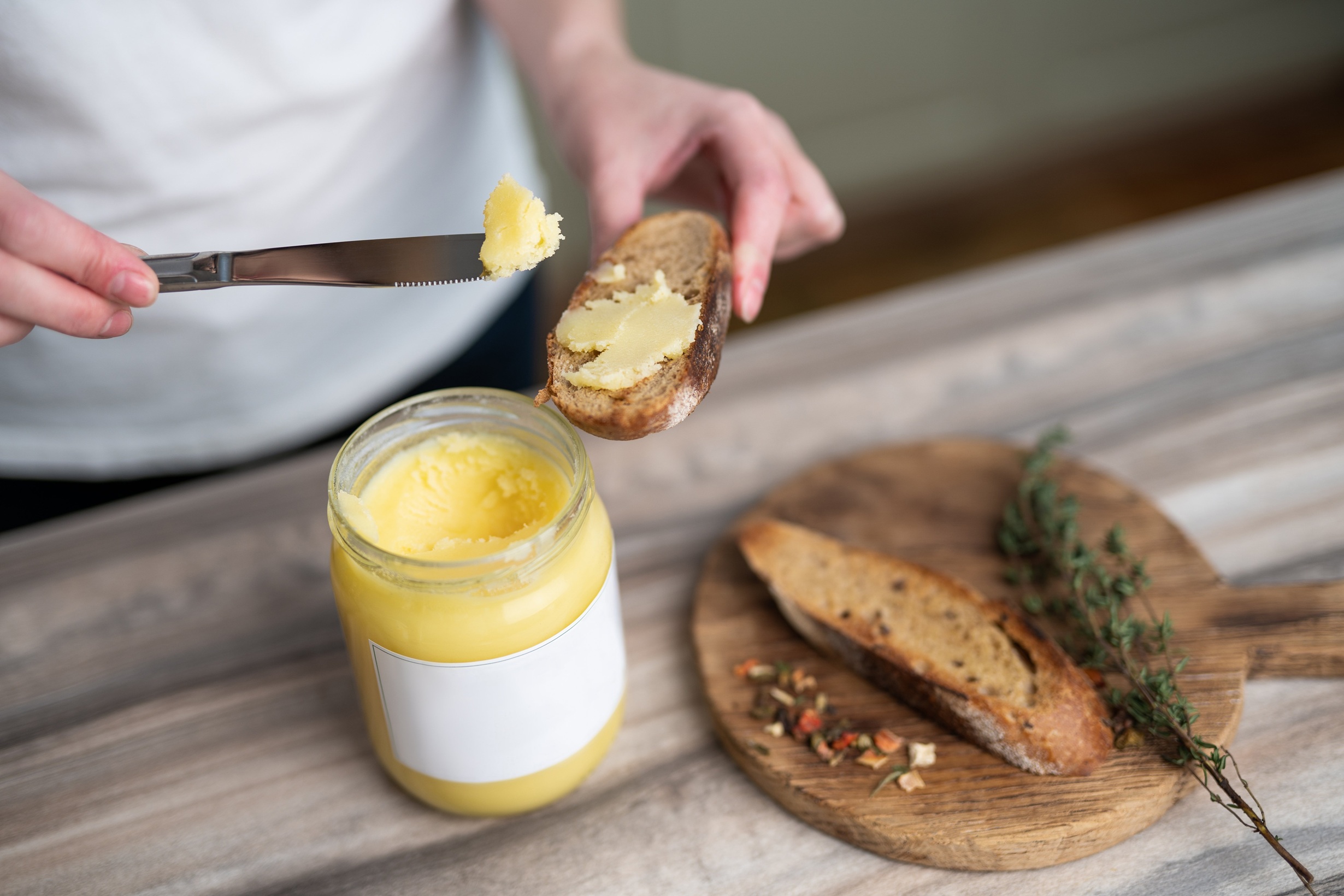
The terrifying price of butter in New Zealand led me to try to research a home-made alternative that is maybe a bit cheaper and doesn’t come in a plastic container.

I concocted a dairy-free alternative that works, tastes nice and is easy to make — but can be expensive to make, and due to being half coconut fat, may not be great for your health (there are varying opinions on this).
If you have ever researched healthy oils for cooking and eating, it is a deep dive into murky depths of confusion (well it is to me). There is loads of conflicting information, but I did manage to learn a thing or two, though all of it can be disputed. No wonder it is so hard to get this aspect of our diets right.
So ... butter is good because it is wrapped in paper, made in New Zealand, and only contains two ingredients — cream and salt. Unfortunately, it has become very expensive, and is roughly 51-65% saturated fat, which gives you high cholesterol, and the dairy industry is taking a terrible toll on our country’s water supplies and rivers.
Margarine used to be made with partially hydrogenated vegetable oil (Hydrogenation is a method of bubbling hydrogen through oil to make it solid like butter). The problem with this partial process was it created trans fatty acids, which were so bad for human health that its use to make spreads has been banned in New Zealand since 2023. So, margarine is not going to kill you quite as fast as it used to.
Some margarines claim to be made from olive oil, which is healthier oil than some others, but in the fine print the ingredients list only contains a small percentage of olive oil and a much larger percentage of other less healthy vegetable oils, which can be palm oil.
Palm oil is really bad for the environment as it is usually grown in areas recently cleared of rainforest, which destroys vast areas of habitat for animals, and trees, which we need to sequester carbon.
Then there is the omega-6 to omega-3 ratios of these oils. The ideal would be for us to eat a ratio of 1:1 to 4:1, but in most Western diets we eat a ratio of 15:1 or even 20:1 so we need to balance this out by eating far more oils containing omega-3. Many high omega-3 oils are just too strong tasting to use in a spread. Hemp seed oil has a nasty strong flavour, and you would not want to be spreading fish oil on toast before marmalade. The exceptions, in my opinion are walnut oil, chia seed oil and, maybe, flax seed oil.
Avocado and olive oil are OK but they have a lot of omega-6 relative to omega-3.
As you can see, it is all pretty overwhelming. Ideally, fully hydrogenated walnut oil or chia seed oil would make a nice table spread but they are just too expensive, and I think that is why you never see such things in stores.
My alternative home-made spread
3 Tbsp coconut oil
3 Tbsp avocado or chia oil
1 Tbsp water
1 capsule of lecithin
1 capsule of plant sterols
½ tsp salt
1 tsp cider vinegar
A pinch of turmeric powder (for colour)
Blend ingredients together and chill.
It tastes good enough but is not particularly cheap. You could substitute deflavoured (light) olive oil.
Adding plant sterols and lecithin, which are available in capsules from the chemist or health food stores, reduces the high cholesterol coming from the high saturated fat content of the coconut oil.
Actually, you could probably do a hybrid by replacing the coconut oil with butter in the recipe, which would extend the volume of your butter considerably, while the plant sterols would reduce the impact of the saturated fat.
Really, in the end, if you want something oily and salty on your broccoli or toast, pour on a little expensive but beautiful oil with a high omega-3 content, such as chia or walnut, then add a sprinkle of salt. Or use light olive oil or avocado oil for a cheaper option.
It is all a bit depressing. No wonder so many of us develop heart problems, and if you are poor it is going to be harder to look after your heart health. And there really is no healthy low-cost option; sorry I couldn’t bring better news.














